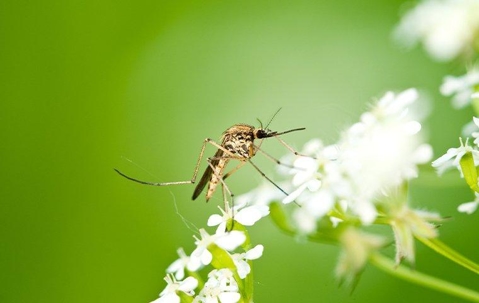Anyone who’s suffered the itchy bites of mosquitoes will look for anything and everything that helps ward them off. Whether you’re traveling around outdoors and looking for protection or just wanting to keep them out of your yard, mosquitoes aren’t an easy pest to avoid. Learning what smells or solutions work -- and how to research which ones are ineffective -- will help you avoid potentially dangerous bites.
Mosquitoes Near You
Local mosquito populations range from common house mosquitoes to exotic tiger mosquitoes with tell-tale stripes down their backs. No matter which species you’re dealing with, all mosquitoes have the potential to transmit diseases like malaria, dengue fever, and Zika virus. Even when they aren’t a health threat, mosquitoes feed off our blood and the blood of animals, leaving behind itchy bites that can be uncomfortable, to say the least. Their classification as not only obnoxious pests but as dangerous health hazards makes mosquito control something that you don’t want to do improperly. It’s only natural for property owners to seek safe and effective solutions that they can apply on their own, but the trick is knowing how to tell solutions from mere myths.
What To Know About Essential Oils
Because of their status as dangerous insects, people will try just about anything to keep mosquitoes off their property -- or to prevent bites while they’re exposed outside. This has led to the increased use of essential oils, which are natural mixtures of herbs, oils, and water that are said to ward off pests. Sometimes it’s the smell of the substance that a certain insect won’t like, while other times the compounds are used as acidic protection against bugs. In any case, it’s important to know that the overall effectiveness of many essential oils is still up for debate. Some things that work on one species of pest may not work against all different kinds, and essential oils are generally better as preventative measures rather than outright solutions. The most important thing to remember is that, if pest populations are already on your property, you should seek professional help rather than try to use DIY solutions.
Some Essential Oils To Look Into
Now that we’ve gotten that big disclaimer about essential oils out of the way, here are some specific ones to look into:
- Citronella: This lemony plant is often used in bug repellents, which can be worn on the skin or on clothing to ward off biting pests. Mosquitoes hate this pungent odor, though it doesn’t usually work as an overall pest control measure, more as a way of protecting individual people and pets from bites.
- Lemongrass: Often mixed in with lemon balm and water, this is another plant that gives off a smell that some mosquitoes dislike. Again, note that this is not a cure-all and more of a protective measure for when you are outdoors.
- Eucalyptus: Another common ingredient in essential oils and sprays is the pungent leaves and flowers found on various eucalyptus plants.
Let Experts Help You With Control
With so much misinformation or misleading accounts to be found online, the most important step that local property owners can take is to turn to the experts. Trained professionals know all the ins and outs of what works against various pest species. At Adams Exterminating Company, our helpful staff will gladly inspect your property and help you decide what methods will best improve your chances of keeping mosquitoes and other biting pests out. We can not only offer helpful tips and tricks on how to properly prevent mosquitoes, but we can also help you spot early warning signs that indicate other kinds of infestations, too.
To protect you and your property from dangerous mosquitoes, turn to the expert guidance of Adams Exterminating Company.

